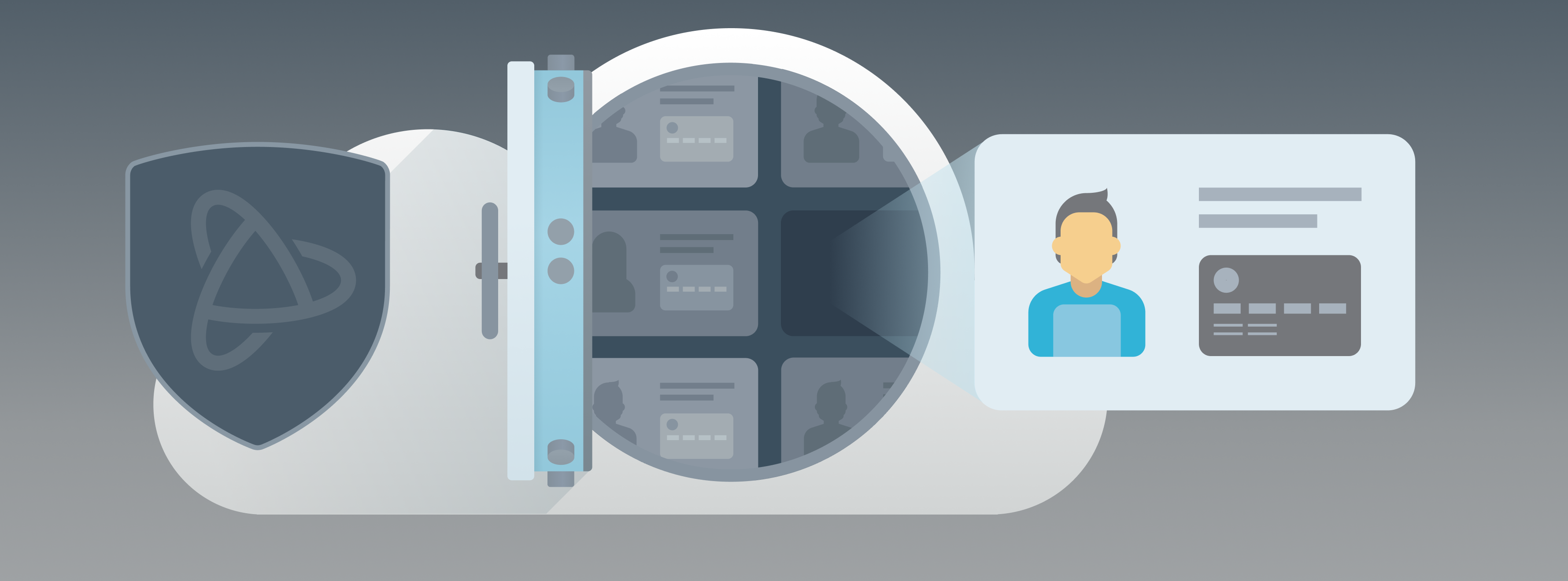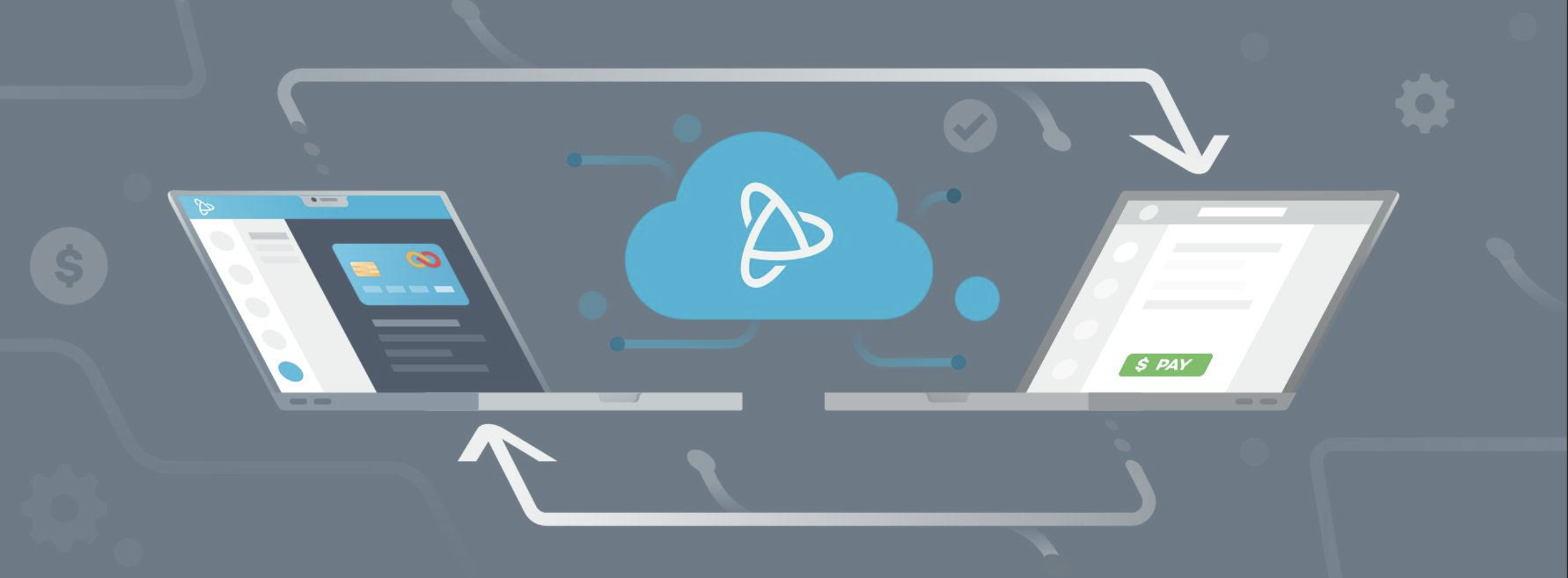When customers hand over their payment information, whether it's at the checkout, over the phone, or online, they're doing more than just making a purchase. They're placing trust in your business to secure transactions and protect their sensitive data.
Let's take a closer look at the technologies that enable secure payment solutions and learn what merchants can do to remain protected and compliant while providing their customers with peace of mind.
The Risk Is Real (and Growing)
Data breaches and payment fraud aren't just a hypothetical risk. According to IBM, the average cost of a U.S. data breach hit $4.9 million USD in 2024. It's also important to note that the impact of a breach isn't usually limited to just money. It is also a challenging and expensive process to rebuild customer trust after a data breach occurs. Small to mid-sized companies (like most dental offices, veterinary clinics, and automotive dealerships) often assume they're not on the radar. But that's precisely what makes them vulnerable.
Healthcare-related industries, such as veterinary and dental practices, are at risk for multiple reasons. These businesses likely store not only payment data and but also protected health information (PHI), making them attractive targets for hackers.
And auto dealerships? These businesses with high-dollar transactions that regularly process ACH and card-on-file service agreements are frequently targets of payment fraud and chargeback scams as well.
The Technology Behind Secure Payment Solutions
The good news? You don't have to fight fraud alone. Today's secure payment solutions provide multiple layers of protection, enabling businesses to stay compliant, mitigate risk, and deliver enhanced customer experiences.
Here's a breakdown of essential features and technologies that any credit card processing company should offer to properly protect your business.
PCI DSS Compliance
The Payment Card Industry Data Security Standard (PCI DSS) outlines the requirements for securely handling cardholder data. From firewalls and encryption protocols to access control and vulnerability monitoring, the goal is simple: prevent card data from being compromised.
Benefit: Working with a PCI Level 1 payment processor, such as PayJunction, significantly relieves the compliance burden from your shoulders. Rather than managing this complexity in-house, merchants benefit from built-in safeguards, annual audits, and the assurance that the highest industry standards are followed when processing payments.
Use Case: A multi-location auto dealership eliminates the headache of individual PCI audits by utilizing a compliant payment gateway to remove sensitive data from in-house systems and networks securely.
Encryption
Encryption ensures that sensitive data transmitted during a transaction is unreadable to unauthorized parties. Payment details, whether captured via tap, swipe, manual entry, or online, are converted into a code that requires a unique decryption key to unlock.
Benefit: Encryption protects against man-in-the-middle attacks and ensures that even if payment data is intercepted, it can't be used or understood.
Use Case: A dental practice utilizing a robust virtual terminal relies on encrypted data transmission to accept payments via online invoices securely.
Tokenization
Tokenization substitutes sensitive card information with a unique token that has no exploitable value if breached. That token can be stored and reused for future payments without the business ever storing actual card numbers.
Benefits:
- Minimizes the impact of a data breach
- Supports secure card-on-file billing
- Simplifies PCI compliance
Use Case: A veterinary clinic offering payment plans or subscription-based wellness programs uses tokenization to securely bill clients monthly, without exposing their actual card data.
Fraud Detection and Prevention Tools
Today's payment solutions are smarter than ever. Built-in fraud detection leverages AI and machine learning to monitor transaction patterns, flag anomalies, and block suspicious behavior in real-time.
Simple, secure tools to prevent fraud for online payments include:
- AVS (Address Verification System): Verifies that the billing address matches the one on file with the card issuer.
- CVV Checks: Confirms the security code matches what's physically printed on the card.
Benefit: Implementing AVS and CVV reduces risk and protects merchants from interchange downgrades, as defined by Visa and Mastercard, thereby lowering the cost of online transactions.
EMV and NFC Technology
EMV chip cards create a unique transaction code with every in-person payment. Unlike magnetic stripe cards, EMV technology prevents cards from being cloned, making them a much more secure payment method.
Near Field Communication (NFC) is a technology that enables two devices, such as your phone and a payment terminal, to communicate with each other when they're nearby.
Use Case: After a service appointment at a dealership, customers can skip the front desk by picking up their car curbside and paying the technician via a tap of their card or phone on a portable EMV payment terminal.
ACH Payments
Automated Clearing House (ACH) bank transfers are an excellent option for high-ticket sales transactions and recurring payments. However, without proper safeguards, they are vulnerable to fraud and insufficient funds errors. Some payment processors, such as PayJunction, work with Plaid to add a layer of security by automatically verifying and obtaining the customer’s account and routing number information and checking real-time funds availability.
Benefit: ACH bank transfers save a business money since they typically cost less than card transactions.
Use Case: A dealership collects a down payment via ACH. Plaid confirms account ownership instantly, minimizing the risk of failed transfers or fraudulent accounts.
Accepting Secure Transactions Across Your Business
Secure payment solutions shouldn't be limited to a single department or transaction type; controls must be in place regardless of where transactions occur, whether in-person, online, over the phone, or on the go.
In-Person Transactions
EMV terminals and digital wallets are secure payment solutions with additional security layers to validate cardholders, which helps prevent chargebacks. A streamlined, secure checkout process enhances the customer experience while keeping sensitive data out of reach.
Online Payments and Hosted Payment Pages
A branded, PCI-compliant payment page is a simple and secure way to accept online payments. Customers can complete transactions at their convenience by filling out a simple form.
Use Case: A dental office features a secure payment link on its website, allowing patients to settle balances from home without needing to call the office.
Text to Pay and Digital Invoices
Sending an invoice request to pay via email or SMS is fast, secure, and customer-friendly. Customers pay instantly by clicking the link and entering payment details.
Benefits: Text to Pay links streamlines processes for employees and makes payments fast, easy, and mobile-friendly for customers. Additionally, cash flow can improve since most people respond quickly to texts.
Use Case: A veterinary practice sends a digital invoice via text after surgery. The pet owner pays securely from their mobile device and can pick up their dog without having to stop at the checkout.
Recurring Billing and Card-on-File
Securely storing cards using tokenization can simplify future transactions, improve cash flow, and reduce friction across your business by enabling recurring billing for subscription services, treatment plans, or installment payments.
Use Case: A dealership's finance office securely stores customers' payment details for its monthly car wash service program, ensuring secure and timely payments.
Virtual Terminal and Back Office Tools
For companies with remote staff or centralized billing departments where employees key in payment details, a secure and robust Virtual Terminal is essential. With secure tokenized storage and encryption, employees can confidently process payments without ever handling or storing sensitive data directly, boosting security. Additionally, user management and access control tools allow businesses to further restrict access to vulnerabilities based on prescribed roles to maintain operational integrity.
Beyond Security: Finding the Best Payment Processor for Your Business
While security is incredibly important, it is worth noting that merchants should be looking for a processor that goes beyond being just a secure payment solution. Find the right processing partner for your business requires finding a payment provider with a reputation for honesty and integrity that offers payment solutions tailored to your specific needs.
This is where PayJunction goes above and beyond by offering:
- No additional monthly fees for PCI, EMV, or other compliance essentials
- Transparent transaction fees with no hidden markups
- Integrated payments that reduce manual entry and errors
- Access to award-winning customer service from real people in under 60 seconds
- Free PCI compliance tools to make protecting your business effortless
- Compliant surcharging, secure card-on-file, Text to Pay, and more
PayJunction is more than just a processor, we’re a true payments partner who takes security seriously. At PayJunction, we succeed when you succeed. That's why we're here to build a partnership with your business that that empowers you to grow with confidence and clarity.
When you work with us, there are no exit fees, no surprise charges, and no pressure, just honest guidance, modern tools, and a team that's here for the long haul.


